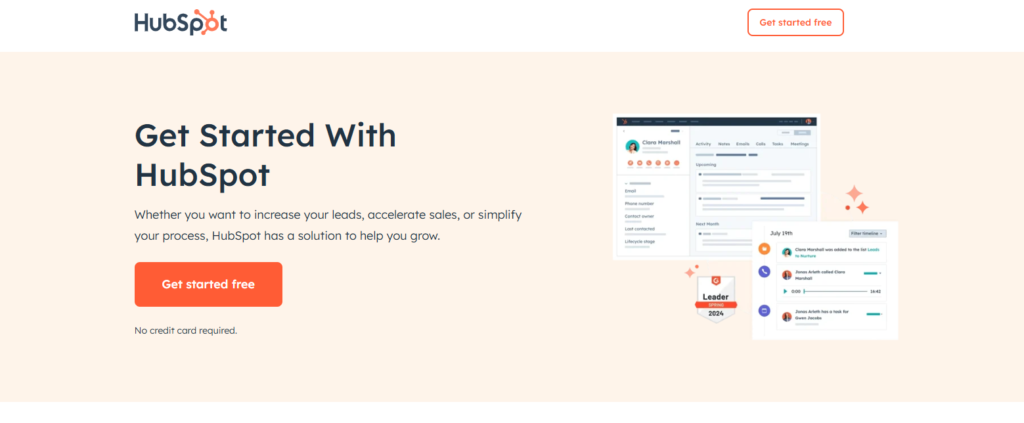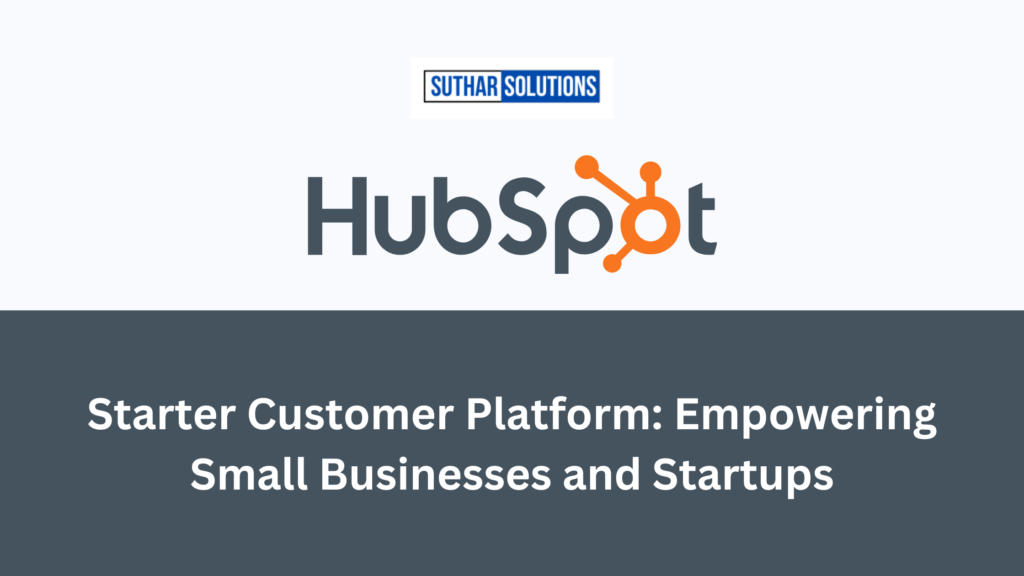Ever wondered how successful companies manage their relationships with customers so effectively? The answer often lies in a tool called Customer Relationship Management (CRM). A CRM system can help you attract, engage, and retain customers more efficiently. In this guide, we’ll dive into the basics of CRM, explore its benefits, and show how it can take your business to the next level.
Table of Contents
CRM Meaning
CRM Meaning: CRM stands for Customer Relationship Management.
It refers to the strategies, practices, and technologies that businesses use to manage and analyze interactions with current and potential customers. A CRM system centralizes customer data, tracks interactions, and automates processes related to sales, marketing, and customer support. This enables businesses to build stronger customer relationships, improve customer retention, and ultimately drive sales growth.
In short, CRM helps companies understand their customers better, streamline their operations, and provide a more personalized experience, which is essential for sustaining long-term business success.
What is CRM?
CRM, or Customer Relationship Management, is a software system that helps businesses manage and improve their interactions with existing and potential customers. CRMs collect data on customer interactions and consolidate them into a single database, accessible by different departments like sales, marketing, and customer support.
This all-in-one platform acts as a central hub, where all customer data—from emails and phone conversations to purchase history and customer preferences—are stored. With CRM System, businesses can streamline customer interactions, respond faster, and deliver personalized experiences that foster stronger relationships.
Why is CRM Important for Businesses?
CRM isn’t just another tool; it’s a transformative way of doing business. Here are a few reasons why CRM has become essential:
- Enhanced Customer Retention and Satisfaction
CRM systems keep track of every interaction a customer has with a company. This makes it easier to identify their needs, provide timely support, and create a consistent, positive experience. - Better Organization of Customer Data
Gone are the days of sifting through scattered emails or searching through old files for customer information. With CRM, all customer data is in one place, giving teams immediate access to information, which leads to faster response times. - Increased Efficiency and Productivity
By automating repetitive tasks—such as sending follow-up emails or reminders—CRMs free up employees to focus on higher-value tasks. This increased productivity translates to better service and, ultimately, stronger relationships with customers. - Insights and Analytics for Smarter Decision-Making
CRM systems analyze customer data to provide insights that help companies make data-driven decisions. From identifying patterns in customer behavior to forecasting future trends, CRMs allow businesses to better understand their audience and adjust strategies accordingly.
Key Features of a CRM System
When exploring CRM systems, you’ll find a variety of tools and features, but here are some essential ones to look for:
- Contact Management
CRM systems organize and store contact information, keeping track of customer names, emails, phone numbers, and other key details. This core feature ensures you always have an up-to-date record of each client. - Sales Management and Pipeline Tracking
A good CRM allows sales teams to manage leads, track deals, and monitor the progress of each potential sale. It also helps prioritize leads based on factors like likelihood to convert, ensuring the most promising leads get timely attention. - Marketing Automation
CRM systems often include tools to automate email marketing, SMS, and social media campaigns, making it easier to reach customers with targeted, personalized messages. - Customer Support Management
CRM can integrate with customer service tools, making it easier for support teams to access customer history, view support tickets, and resolve issues efficiently. - Analytics and Reporting
Most CRMs include reporting features that provide insights on customer behavior, sales performance, and marketing effectiveness. These insights help businesses refine their strategies and maximize ROI.
Software Of CRM
When choosing a CRM system, it’s helpful to know the range of software of CRM options available. Here’s a look at some popular CRM software platforms, each with unique features that serve different business needs:
Salesforce CRM
Salesforce is one of the most widely used CRMs, offering robust customization options, advanced analytics, and integration with hundreds of other apps. Its cloud-based platform makes it ideal for businesses of all sizes, especially those needing flexibility and scalability.
HubSpot CRM

Known for its free version, HubSpot CRM is perfect for small businesses and startups looking to get started with CRM at a low cost. It includes basic sales and marketing features, with upgrades available for more advanced needs like automation and analytics.
Zoho CRM
Zoho is an affordable, user-friendly option for small to medium businesses. It offers AI-driven insights, workflow automation, and tools for lead management. Zoho’s CRM is part of a larger suite of business applications, making it easy to expand its functionality as your business grows.
Microsoft Dynamics 365
This CRM integrates seamlessly with other Microsoft products like Office 365 and Teams, making it ideal for businesses already invested in the Microsoft ecosystem. It’s especially popular among larger enterprises due to its advanced analytics, AI capabilities, and strong customization options.
Pipedrive
Pipedrive is known for its sales-focused design and visual pipeline features, making it an excellent option for small to medium-sized businesses that prioritize lead management and deal tracking. It’s straightforward to use, with customization options that make it easy for teams to tailor workflows to their needs.
Freshsales by Freshworks
This CRM is known for its intuitive design and affordability, making it a great option for small to mid-sized businesses. Freshsales focuses on automation, allowing teams to set up workflows and easily track interactions, plus it offers integration with other Freshworks products for expanded functionality.
Each CRM system offers different features and pricing structures, so it’s essential to evaluate your business’s specific needs before selecting the best option. Considering factors like ease of use, scalability, and integration capabilities will help ensure you choose the CRM software that supports your long-term goals.
Who Can Benefit from CRM?
Whether you’re a small business or a large enterprise, a CRM system can bring valuable improvements to your operations. Here’s how it benefits different departments:
- Sales Teams can better organize and prioritize leads, close more deals, and reduce time spent on manual tasks.
- Marketing Teams can create more targeted campaigns based on customer preferences and behaviors, leading to higher engagement rates.
- Customer Support Teams can access a full view of each customer’s history, making it easier to resolve issues and enhance customer satisfaction.
Steps to Implement a CRM System for Your Business
Implementing a CRM can feel overwhelming, but it doesn’t have to be. Here’s a simplified roadmap to help you get started:
- Define Your Goals
Determine what you want to achieve with CRM. Are you looking to boost sales, improve customer service, or streamline marketing? Your goals will shape the CRM features you need. - Choose the Right CRM Platform
With so many CRM options available—like Salesforce, HubSpot, and Zoho—it’s important to pick a solution that aligns with your needs and budget. Some CRMs focus on specific features, like sales tracking, while others offer broader functionality. - Get Buy-In from Your Team
Ensure your team understands the benefits of CRM and how it can make their work easier. Employee buy-in is crucial to successful CRM adoption. - Migrate Data and Set Up Workflows
Import your existing customer data into the CRM and set up automated workflows for tasks like lead assignment or follow-up emails. This will streamline your processes from day one. - Provide Training and Ongoing Support
Train your team on how to use the CRM and provide ongoing support. Familiarizing everyone with the system helps maximize its effectiveness.
Common CRM Myths
When researching CRM, it’s easy to come across misconceptions. Let’s clear up a few common myths:
- Myth 1: CRM is Only for Large Businesses
Truth: CRM is scalable and works just as well for small businesses, helping them manage leads and improve customer relationships. - Myth 2: CRM is Only for Sales Teams
Truth: While CRMs benefit sales teams, they also provide value to marketing, customer service, and even finance departments. - Myth 3: CRM is Too Expensive
Truth: While high-end CRMs can be costly, there are plenty of budget-friendly options for smaller businesses, including free CRMs like HubSpot’s basic plan.
Final Thoughts: CRM as a Growth Tool
In a competitive market, CRM is more than just software—it’s a growth strategy. By offering a 360-degree view of your customers, automating manual tasks, and providing valuable insights, CRM systems allow businesses to strengthen relationships and drive success.
Whether you’re just starting out or looking to improve your existing customer management practices, investing in a CRM system could be the key to unlocking new growth potential for your business. Ready to take the first step? Explore CRM Tools and find the right fit for your business today!
FAQs (Frequently Asked Questions)
1. What does CRM stand for?
CRM stands for Customer Relationship Management.
2. How does CRM help small businesses?
CRM helps small businesses organize customer data, track leads, and automate marketing, making it easier to compete with larger businesses.
3. How long does it take to implement CRM?
Implementation time varies, but with the right planning, many businesses can get up and running within a few weeks.
4. What are the main benefits of a CRM system?
CRM systems improve customer satisfaction, streamline sales and marketing efforts, enhance productivity, and provide valuable insights into customer behavior.
5. How does a CRM system work for customer support?
CRM systems centralize customer information and track support interactions, making it easier for support teams to resolve issues quickly and provide personalized support.
6. Is CRM software expensive?
CRM costs vary. Some platforms offer free basic plans, while others offer advanced, customizable solutions for larger budgets.
7. What is the difference between CRM and ERP?
CRM focuses on managing customer relationships, while ERP (Enterprise Resource Planning) manages core business processes like accounting, inventory, and HR.
8. Can CRM be customized to suit my business needs?
Yes, many CRMs offer customization options, allowing businesses to tailor workflows, fields, and automation to suit their unique processes.
9. How does CRM improve sales?
CRM helps sales teams manage leads, track opportunities, and automate follow-ups, ensuring that no potential sale falls through the cracks.
10. What’s the difference between cloud-based CRM and on-premise CRM?
Cloud-based CRM is hosted online, accessible from any device with an internet connection, and usually requires a subscription. On-premise CRM is installed on a company’s servers, providing more control but often requiring higher upfront costs.
11. How long does it take to see results from CRM implementation?
While results vary, many businesses begin to see improvements in productivity and customer satisfaction within a few weeks to months after full implementation.
12. Do I need technical skills to use a CRM?
Most CRM systems are designed to be user-friendly. However, a bit of initial training can help teams make the most of the features.
13. What’s the future of CRM technology?
CRM technology is evolving to incorporate AI, predictive analytics, and machine learning, making it easier for businesses to predict customer needs and personalize experiences.
14. What are the best CRM software options for small businesses?
Small businesses often benefit from affordable and user-friendly CRMs. HubSpot CRM, Zoho CRM, and Freshsales by Freshworks are popular choices for small businesses. HubSpot CRM offers a robust free plan that covers essential features, while Zoho CRM and Freshsales provide scalable options with tools that grow as your business does. These platforms are designed with intuitive interfaces, making them easy for teams to adopt.
Disclaimer: Some of the products and services featured here, along with their links, are affiliate links. This means that if you make a purchase through them, I may earn a commission—at no extra cost to you. Read more….
